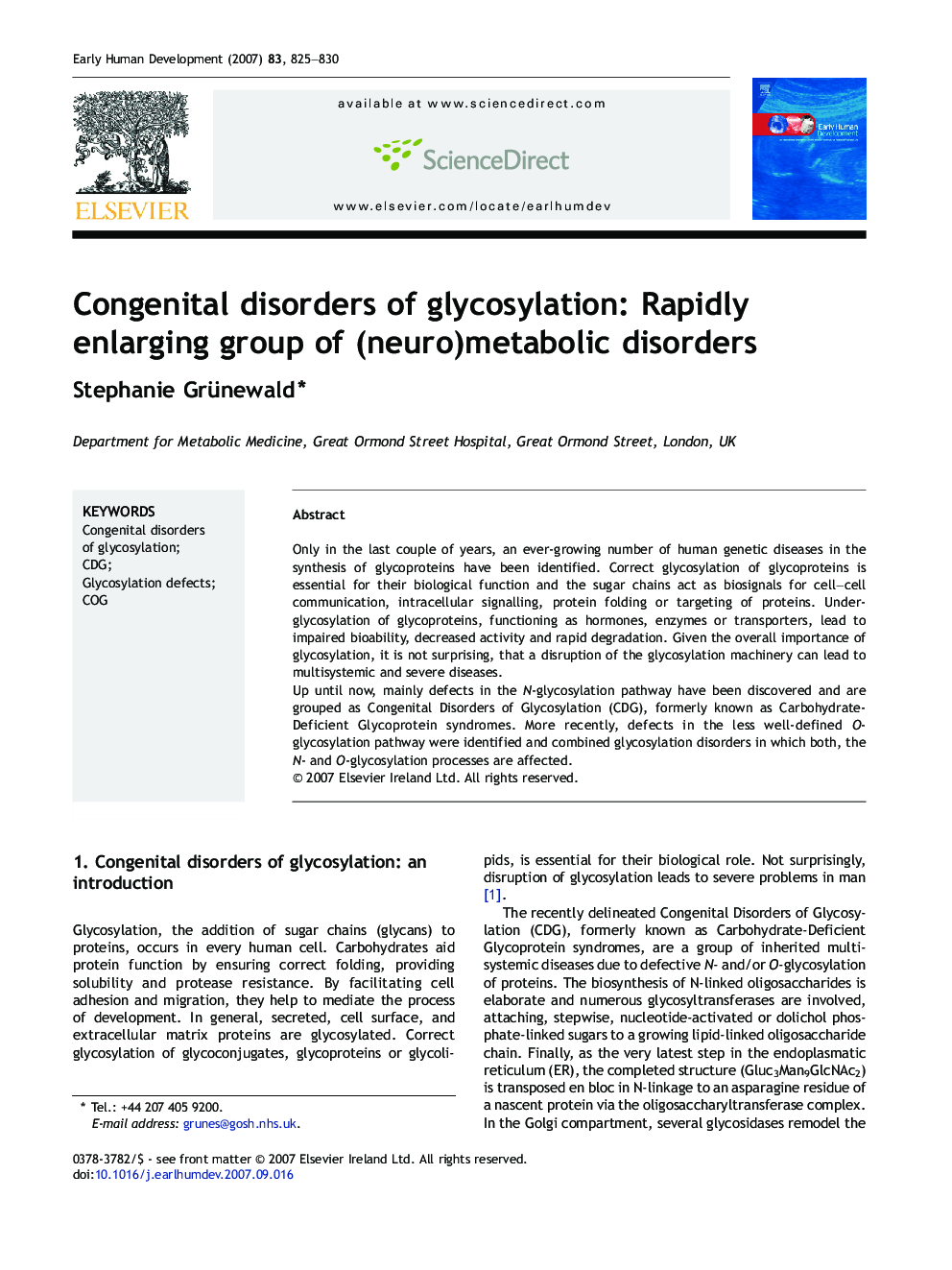| Article ID | Journal | Published Year | Pages | File Type |
|---|---|---|---|---|
| 3918303 | Early Human Development | 2007 | 6 Pages |
Only in the last couple of years, an ever-growing number of human genetic diseases in the synthesis of glycoproteins have been identified. Correct glycosylation of glycoproteins is essential for their biological function and the sugar chains act as biosignals for cell–cell communication, intracellular signalling, protein folding or targeting of proteins. Underglycosylation of glycoproteins, functioning as hormones, enzymes or transporters, lead to impaired bioability, decreased activity and rapid degradation. Given the overall importance of glycosylation, it is not surprising, that a disruption of the glycosylation machinery can lead to multisystemic and severe diseases.Up until now, mainly defects in the N-glycosylation pathway have been discovered and are grouped as Congenital Disorders of Glycosylation (CDG), formerly known as Carbohydrate-Deficient Glycoprotein syndromes. More recently, defects in the less well-defined O-glycosylation pathway were identified and combined glycosylation disorders in which both, the N- and O-glycosylation processes are affected.
